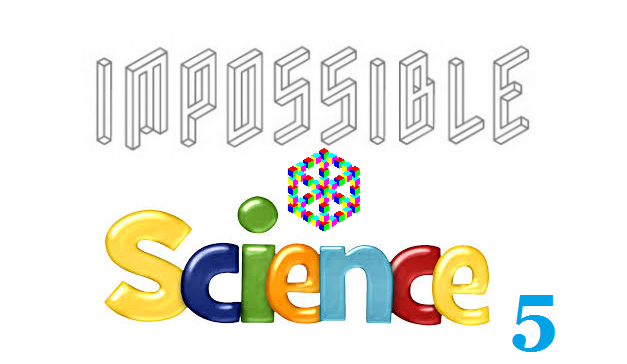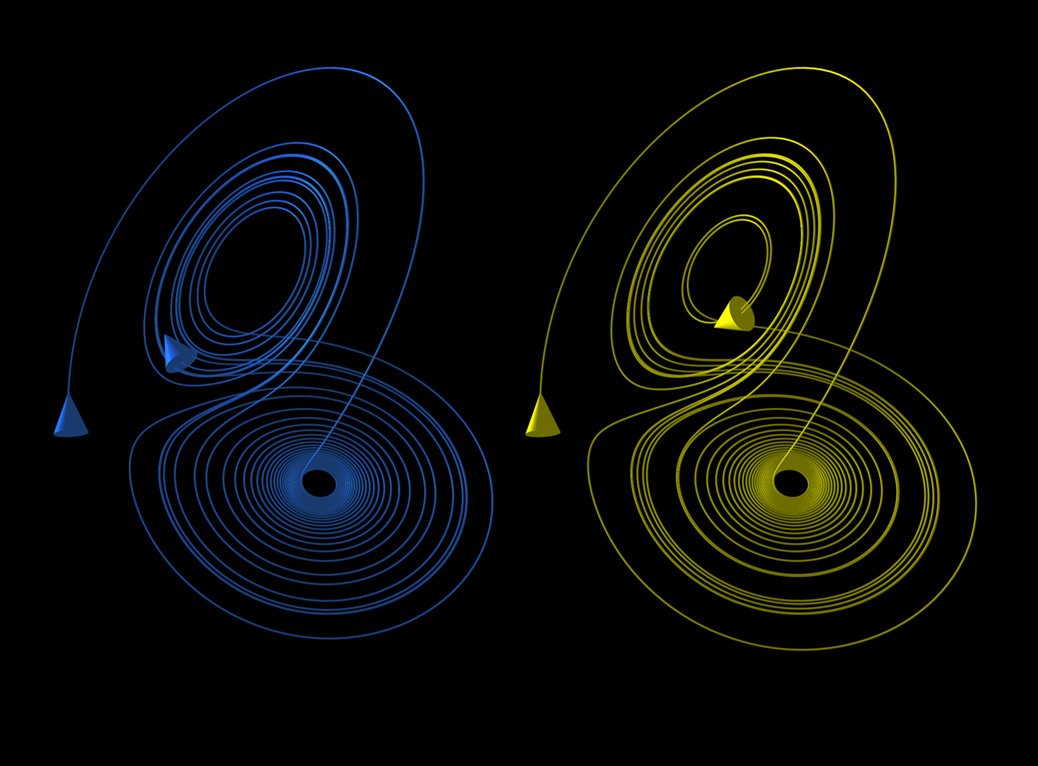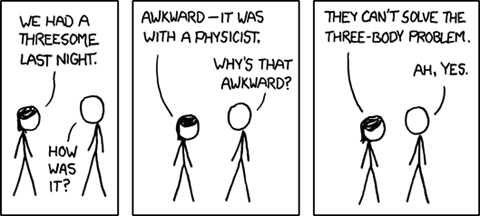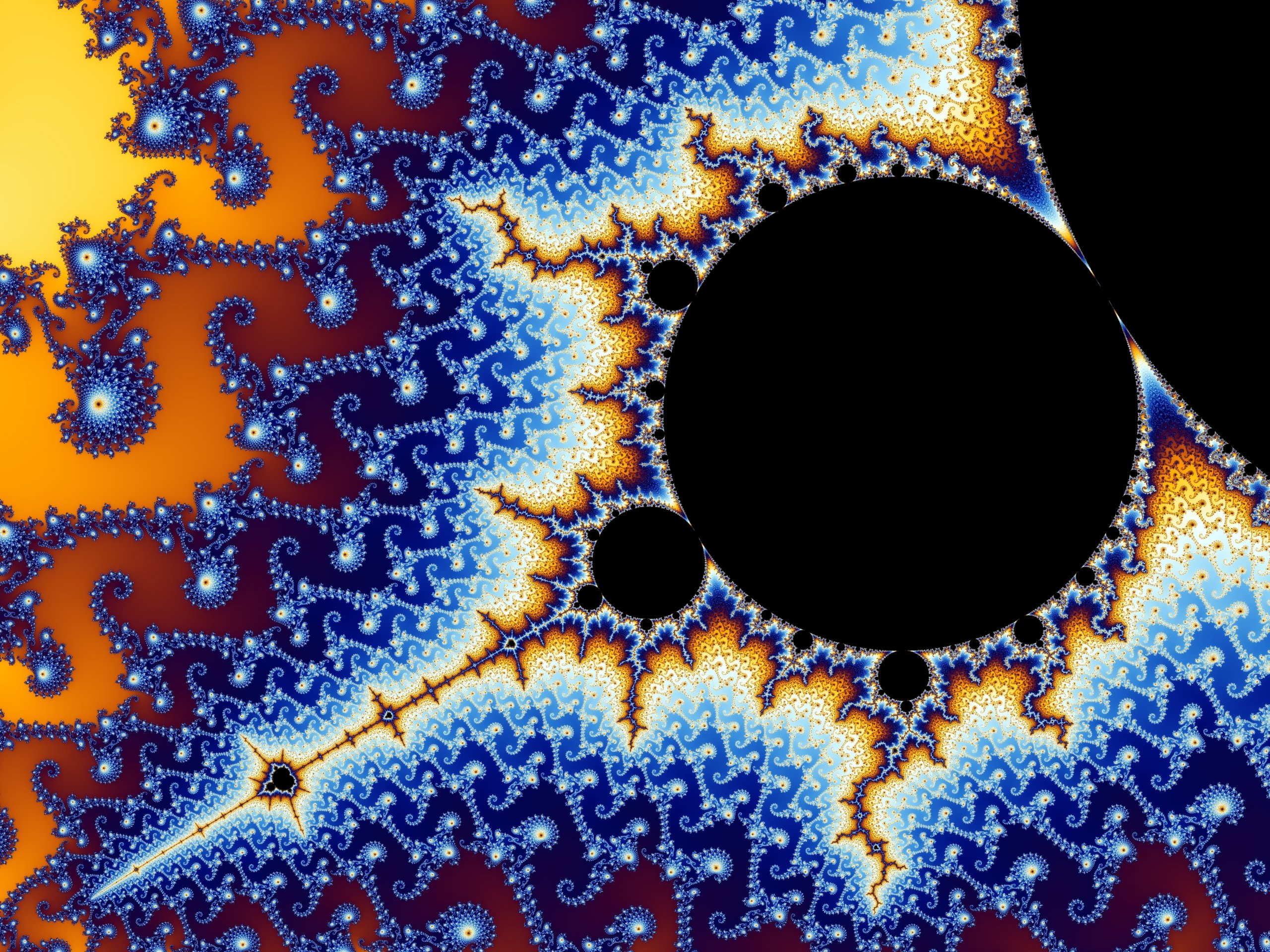CHAOS MAKES PREDICTING THE FUTURE IMPOSSIBLE

Impossible Science #1,#2,#3,#4,#5
In a deterministic system, knowledge of present conditions enables us to predict how the system will behave into the indefinite future. While in principle, this is true of both 2-body and 3-body systems, in practice, the behavior of the 3-body system may be radically harder to predict. The phenomenon of dynamical chaos is present in many systems, including motions of planets, stock markets, rhythms of heart beats, and the human brain. Even when the future of a chaotic system is mathematically determined, that systems future may be impossible to accurately predict.
Perfect Determinism

Systems which can be completely described by Newton’s laws of motion are perfectly deterministic. Newtonian mechanics is a deterministic system. Which means the starting conditions and known laws can be used to describe how forces govern the paths of all particles. In principle specifying the positions and velocities of particles at one time allows the motion to be determined at all times.
Laplace's Demon

Pierre-Simon Laplace proposed the first thought experiment confronting determinism in 1814. He imagined a demon that had complete knowledge of all the locations and velocities of all particles in the universe. He proposed that in principle such a demon could predict the future of the entire universe exactly. This would spark centuries of debate over free will that still continue to this day.
3-Body Problem

The motion of a 2-body system is simple, but the motion of a 3-body system is too complex to determine. Even relatively simple applications of Newton’s laws defied mathematical solution for centuries. Henri Poincaré attacked the 3-body problem with new methods in 1887. What he found were signs of extremely strange and complex behavior in such systems. He proved that no classical solution for the three-body problem using algebraic expressions and integrals could ever exist. Much like digits in Pi the motions of three bodies in a classical system are non-repeating and therefore impossible to predict.
Chaos Is Born

Edward Lorenz stumbled on the concept of chaos while performing numerical experiments on weather forecasting. Lorenz’s created highly simplified models of the weather and got some very unexpected results. The system showed extreme sensitive dependence on initial conditions. Lorenz soon found this behavior in waterwheels as well. Starting the wheel with slightly different conditions will lead to different long-term behavior.
The Butterfly Effect

Sensitive dependence on initial conditions means that the system is fundamentally unpredictable, or chaotic. No matter how accurate our measurements we will always be slightly uncertain about any system’s initial conditions. This means we can only predict the future behavior of such a system for a short time. Lorenz called this the butterfly effect. The motion of the wings of a butterfly in Brazil can determine whether or not there are tornadoes in Texas a month from now. Therefore, we can only make general predictions about these systems. In terms of Lorenz's weather studies, we can predict climate, but not weather.
New Science of Chaotic Systems

Lorenz’s discovery of sensitivity to initial conditions led to a new science of chaotic systems. In a chaotic system, more precise knowledge of initial conditions does not help much in making predictions. Chaos is found all over natural and man-made systems. Everything from the 3-body problem to dripping faucets to the networks of the brain. These systems all have something in common besides sensitive dependence on initial conditions; they are all fundamentally unpredictable.
Killing Laplace's Demon

Chaos proves Laplace’s demon is impossible. All real systems in the universe can possess only a finite amount of information. Even if we ignore the uncertainty principle which limits our knowledge of both position and velocity chaos prevents predicting the future. In order to make exact predictions of the future, the demon would have to know all positions and velocities of every particle in the universe to an infinite number of decimal places. This is an infinite amount of information. Since the universe contains chaos, this limits their ability to predict the future.
Conclusion

Regardless if the universe is actually deterministic, for inhabitants of the universe, it will always be unpredictable. Chaos makes exact predictions of the future impossible, even for a deterministic system.
Questions to Answer in Comments:
Do you regard the difference between determinism and predictability as fundamental, or merely incidental? Why?
Recalling the 3 types of impossibility from Part #1 - THREE TYPES OF IMPOSSIBLE, which type of impossibility makes exact predictions of the future impossible, even for a deterministic system?
Impossible Science
#1 - THREE TYPES OF IMPOSSIBLE
#2 - ALMOST IMPOSSIBLE
#3 - ABSOLUTE ZERO IMPOSSIBLE
#4 - IMPOSSIBLE PERPETUAL MOTION
#5 - CHAOS MAKES PREDICTING THE FUTURE IMPOSSIBLE
